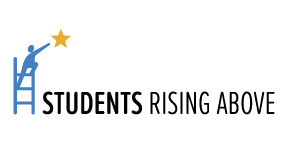Women’s Empowerment Month: Paving The Way For BIPOC Women In STEM
 In honor and celebration of Women’s Empowerment Month, we’re spotlighting BIPOC women in leadership, who are taking action for equality and paving the way for our future leaders.
In honor and celebration of Women’s Empowerment Month, we’re spotlighting BIPOC women in leadership, who are taking action for equality and paving the way for our future leaders.
This week, we connected with Veronica Toscano, SRA Alum and Chief of Staff and Privacy Specialist at Cisco. Veronica shares the immense challenges she overcame to pursue a higher education, paving the way for a successful career at a leading global technology company; continued gender-related challenges she’s faced / faces throughout her career; and her deep commitment to ensuring there are more BIPOC women in STEM and leadership.
Read the full story below:
Please share a little about yourself. Where are you from? How did education shape your life?
Growing up in a low-income area, surrounded by drugs and gangs, I did not have the same opportunities as my peers. My peers’ parents were executives, my peers had access to computers, tutors, etc. At the time, I thought I was at a disadvantage. Looking back, I would not change anything about my upbringing. I was blessed to learn from my mom, a woman who figures it out. What is it? It is anything. My mom witnessed her only son being shot and killed by her husband, who then turned to shoot at her. My mom had two weeks to figure out where we were going to live (our house was a crime scene), where my sister and I were going to attend school (we were kicked out because as a six and 10 year old, we were a threat to the student body since our dad was never captured), and the last thing she had to figure out, which no parent should ever have to do, was plan her 17 year old son’s funeral. There were no excuses. She figured it out. Together, we figured out the importance of an education, and how it was going to be my ticket out the hood.
How did you find your career path in tech?
I graduated during one of the worst times, the 2008 economic recession. It was tough to find a job! Very similar to what recent grads are facing in this pandemic. After several job rejections from non-profits, I decided to apply for an Executive Assistant position at McAfee. My plan was to get my foot in the door and work my way up. I did this through jumping to support and lead projects that caught my interest.
How did SRA help navigate your college-to-career journey? Specifically career development / career opportunities?
The term college was unknown to me my entire life until I reached my sophomore year of high school. Then when I was in college the terms internships and career were even more foreign. I get this degree then what do I do? SRA didn’t leave it to my mom and I to figure it out. They were there to support us. It was the same situation as before, my peers were at an advantage. Their executive parents could get them internships. This time, I had SRA in my corner. SRA helped me get my foot in the door with internship interviews, and it was up to me to bring it home.
This is why I continue to promote and support SRA. It is not your typical scholarship which hands you a check. It is a well-rounded program that provides all the tools and resources a first-generation student needs in order to be successful in life.
Please share your experiences in leadership at a leading tech company.
Since I was a child, I always wanted to make sure everyone felt like they belonged and they mattered. I did this through setting up events which in Corporate America we call team building. These events incorporate my personal passion of volunteering in low-income neighborhoods, building bikes for inner city youth, game night, etc. My favorite activities were those where team members brought their kids to campus. It was so much fun watching kids run through the office searching for eggs or trick-or-treating. Building culture is important.
The power of gratitude! Dale Carnegie’s How to Win Friends and Influence People shares John D. Rockefeller’s success in managing employees was sincere appreciation. I challenge you to open the last two minutes of your staff or quarterly business reviews to employees and give them an opportunity to appreciate each other. The kudos doesn’t have to be someone in the meeting, it can be someone on another team. The message will get to the person being appreciated, and it will make their day.
Another trait I look for is someone who owns up to their mistakes; takes accountability. Julie Cullivan, who I mention as one of the women I admire in tech, taught me this valuable lesson. I was working on a team project and a colleague sent me their part. Then I had to complete the final product. Julie sent an email asking the colleague for a status. I quickly chimed in and replied, “The colleague sent it over earlier. It is on my end now to get it done.” Julie responded with the best answer, “I appreciate you taking ownership. I don’t like surprises unless they are in blue boxes (aka Tiffanys)!” Through me taking ownership, it showed my colleague I had their back. It also showed me that Julie had my back.
How have you navigated a gender-related challenge in your career?
Absolutely, as a young-Latinx-woman I navigated multiple gender-related challenges in my career. We are all too familiar or perhaps have experienced mansplaining. The first time I encountered it, I remember feeling super confused. I sat there thinking isn’t that what I just said?! I approached the male colleague after and asked “Why is it when you repeated what I said, it made sense to the team?” His response, “It’s probably my manly voice and title.” The response did not sit right with me. I asked a female executive for advice. She said the ownership should have been on the male leader to give you credit. Go ask him to be your ally next time. Frack…I have to go back to this guy and ask him to be an ally and give me credit. Do I sound like a baby? Do I sound like a diva? Is this really worth the fight? Just let it go and if it happens again say something. Well, it happened again, and again, and again. Until finally I was in a meeting and just asked the team, “Can you help me understand why when he said what I said it landed well?” The men’s facial reactions were like they saw a ghost. They were in shock. I myself was in shock and felt like they thought I was a b*tch for asking the question. At the end of the day, there was a problem, mansplaining is not acceptable, and it needed to be addressed.
The mansplaining doesn’t stop. However I will say working for Duo, a unicorn company acquired by Cisco, gives me hope for change. During my first meeting, my male colleague said, “Back to Veronica’s point…” what?! This man didn’t take credit. Pinch yourself Vero. Every meeting within Duo is that way male, female, their colleagues will reference the original team member’s name that brought up the idea.
Who are women in leadership you look up to?
The two women that come to mind are my mom and Julie Cullivan. The common trait between these women is charisma. They have this unique capability of making everyone feel like they belong.
My mom experiences countless struggles in life. These challenges started at a young age. She was born into a poor family. Her parents were field workers. As soon as my mom was able to, she joined her parents and five siblings to pick in the fields. Later in life, the unthinkable happened – she witnessed her son being murdered by her husband. As a result, she was left to struggle as a single mom. Life’s tribulations continue to knock on her door. No matter the hardship, she always has faith and never gives up. What I admire the most about my mom is her vibrant-magnetic personality that can lift anyone’s spirits. When we go shopping, walking, or volunteer people are instantly drawn to my mom. She will talk to them like she knew them forever. It’s surreal.
Julie has served as a C-Level Global Business Leader and sits on the Board of Directors for several companies. She has won various awards, including Bay Area CIO of the Year, and has been featured in countless publications. Julie is a rock star that stays humble.
What I admire about Julie the most, is her unique capability of being able to put a face to the name of all the team members in her organization. These teams are 100+ people and she knows everyone! For me, it was a huge deal that Julie, the CIO, knew my name. Julie made me feel important, she made me feel that I belonged.
Dale Carnegie’s How to Win Friends and Influence People discusses Charles Schwab attributing his success to showing people appreciation and encouragement. These two ladies accomplish that and that is why I would follow them anywhere.
Please share your experiences as a BIPOC woman in leadership.
Rather than share my experiences, I want to share what I am doing to make sure there will be more BIPOC women in leadership. I continue to volunteer with Students Rising Above with the goal to interest more women in tech or STEM. I never forget where I came from and offer help to those in the neighborhood I grew up with how to navigate college and hopefully choose a career in tech or STEM. I also connect with other women of color at my work, to see how we can support and lift one another up.
What do equity and equitable opportunities mean to you?
SRA is hitting us with the tough questions here. Being a young-woman-of color, equity and equitable opportunities mean two things: 1) Fair and equal compensation across the board. 2) Opportunity is held to its definition “a chance of employment or promotion.” We open doors to first-generation, low-income students seeking internships.
What does SRA mean to you in terms of closing equity gaps?
Students Rising Above is not a scholarship to me. It is a program that provides the tools and resources first-generation, low-income students need to fully experience college life. Since we are the first in our family to go to college, we don’t have the connections to land us an internship. We are not privileged like our peers whose parents are executives. Luckily we have SRA, who has the network to help us land those internships at Apple, Google, County of Santa Clara, etc. SRA will always be there to support your continued success.
What does leadership mean to you?
Leadership to me means having your back and feeling empowered. There comes a point in your career that you have to become comfortable making decisions. And if that decision didn’t bring the outcome you desired, your boss has your back.
What is your greatest hope for women of the future / next generation?
This new generation is built with social media at their fingertips. This gives me great hope because when injustice is seen or experienced, her story can be told worldwide within seconds. Women, Fathers of Daughters, Allies, and Theys will be there to support and have your back.
Any advice for future leaders?
Do not gossip. Gossiping breaks up the band. As a leader, you should be creating a team that is built on trust and transparency.
